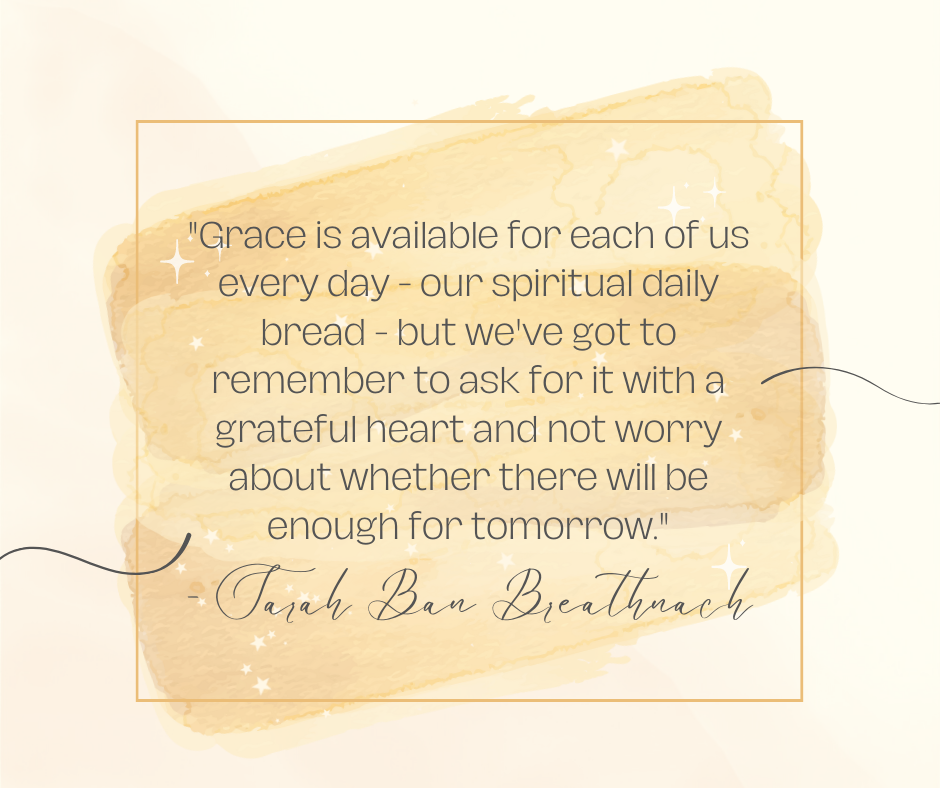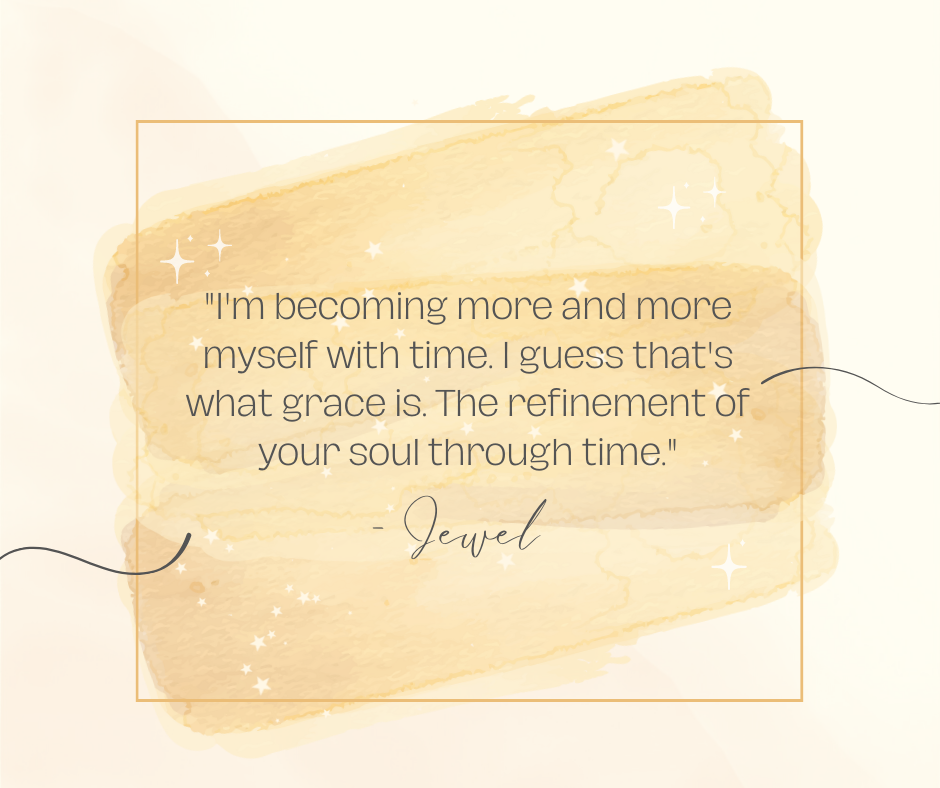Why you need grace in your life…and how to find it

“Life is measured in love and positive contributions and moments of grace.” – Carly Fiorina
So, what exactly is grace, and when was the last time you expressed grace, or were the recipient of grace from someone else?
In my next series of posts, I will be exploring the many facets of grace, and how we can introduce more grace into our lives each day.
The word grace frequently appears in religious texts, such as the Bible, which often talks about “the grace of God”. God’s grace basically means God’s acceptance and unconditional love, not matter what we do.
Regardless of your religious beliefs or spiritual practices, we can apply this word in exactly the same way in our lives.
Simply put, showing grace means giving ourselves, and others, a break.
When we act with “grace” we give others the benefit of the doubt by showing courtesy and good-will, or even forgiveness. Grace is seeing the best in other people or a situation, and generally taking a moment to slow down and move through life with gentle ease.
Someone cuts you off in traffic? Oh well. They’re in more of a rush than you and you hope they get to work safely.
Someone says something unkind? Oh well. Maybe they’ve got a lot going on at home we don’t know about right now.
To be clear, we can demonstrate grace AND uphold boundaries with other people without compromising our own values and beliefs. Showing grace means we overlook the one-off occasions when others aren’t at their best. We accept that everyone is human, and we’re not perfect.
Here are some ways we can show grace each day:
- Show yourself grace. The first step to showing grace to others is to show grace to yourself first! When you are kind and compassionate towards yourself, it is easier to be kind and compassionate to others. Some days we are on fire and tick everything off our To-Do list. And other days can be more challenging, especially if we are tired or unwell. Tune in to how your body is feeling and react accordingly. If you need to rest, rest.
- Say sorry. You might snap at your kids, partner, or a work colleague. Perhaps you do something unintentional that upsets someone else. Rather than making excuses or being defensive, be quick to admit when you’re wrong and apologise or make amends so everyone involved can move on.
- Let it go. The more we live in the past, the harder it is to move into the future. We can’t control what has passed, but we can control our reaction and thoughts about it. Learn the lesson and move on. Remember, this too shall pass.
- Forgive. Once you have let go of the past, try and let go of any feelings of animosity by forgiving yourself and others. It is often said that forgiveness isn’t for the other person, it’s for yourself. Forgiving ourselves and others gives us permission to release negative feelings that can consume us for years and move forward.
- Demonstration kindness and compassion. “Before you judge a man, walk a mile in his shoes” is a timeless saying reminding us that we never know what other people are going through. We don’t know their home, family, health, or financial situation. People will often only show the side they want others to see, so we don’t get the full picture of their challenges and struggles. When someone reacts out of character, this is often a good sign that, like an iceberg, more lies beneath the surface. Ask people how they are, and actually stop to listen to their answer. Speak kindly to people, and don’t make their life any more difficult than it already is.
- Accept others. Everyone in this world is different, and for good reason. How would we survive as a species if everyone was an artist, or an accountant? Sure, we’d live in a world surrounded by beautiful pieces of art, and would get our tax done on time, but who would take care of the sick people if there were no doctors or nurses, or educate us if there were no teachers, or feed us if there were no farmers, chefs, or wait staff? It’s our diversity that makes our world so fascinating. There is always more to learn, do and see because of the cultures that exist. We can show grace by not only accepting, but celebrating our diversity. Not everyone will think like you, and that’s a good thing! You might not get along with everyone, but you’ll certainly learn some incredible lessons, which I encourage you to embrace.
- Be grateful. Showing grace also involves taking a beat to stop and look around at how much magnificence is in the world. For example, there might be three “less than ideal” things going on in your life at the moment, but I can just about guarantee there are infinitely more blessings surrounding you. These could include: family, friends, a roof over your head, food on your table, cleaning drinking water, a healthy body, the ability to connect to the internet, or communicate via a computer or a mobile phone, a job, your community, your neighbours, the sky outside your window, or simply an act of kindness someone demonstrated to you today with a smile or a kind word. There are endless examples, which I encourage you to seek out and appreciate every day.
- Set a good example. A good example is the best teacher, especially when it comes to demonstrating grace. The more you practice and demonstrate grace to others at home, at work, or in your community, the more inclined others will be to follow your example. Every day we are given the choice to operate from a place of grace.
Practicing and demonstrating grace is not a ‘one and done’ task. As the singer Jewel says, “I’m becoming more and more myself with time. I guess that’s what grace is. The refinement of your soul through time.” Living a grace-focused life requires daily commitment and focus, as well as self-awareness, reflection, and refinement, in the same way you create a magnificent masterpiece.

I’ll close with this quote from Sarah Ban Breathnach: “Grace is available for each of us every day – our spiritual daily bread – but we’ve got to remember to ask for it with a grateful heart and not worry about whether there will be enough for tomorrow.” Go forward with grace.
